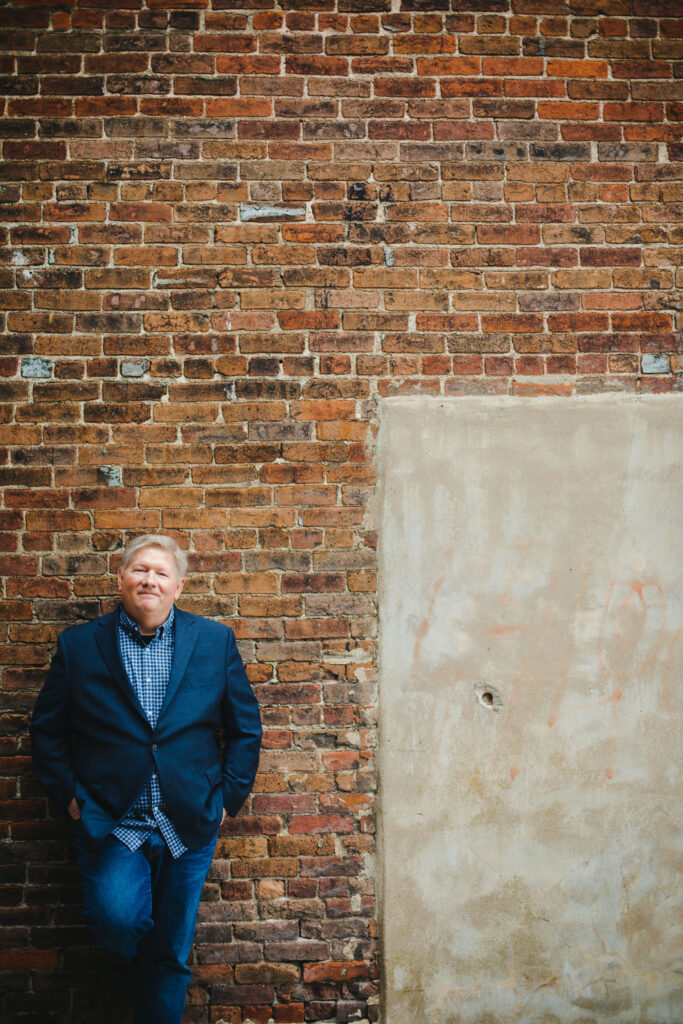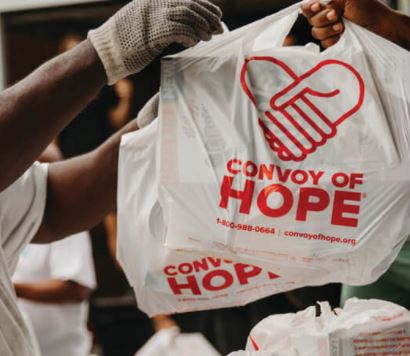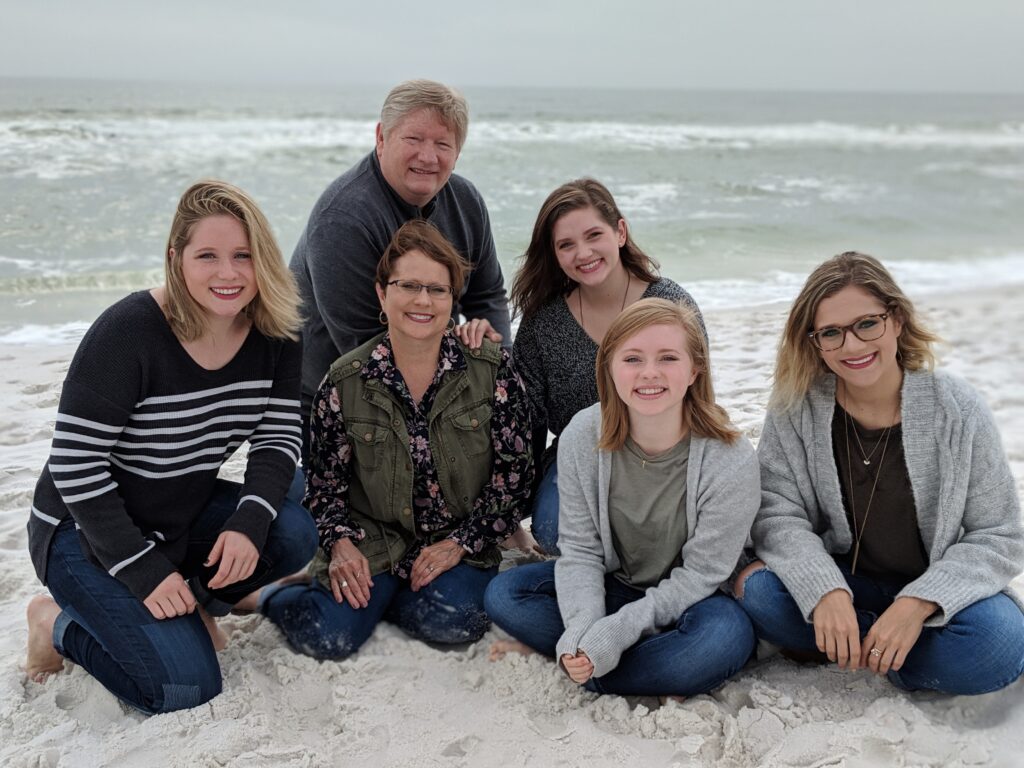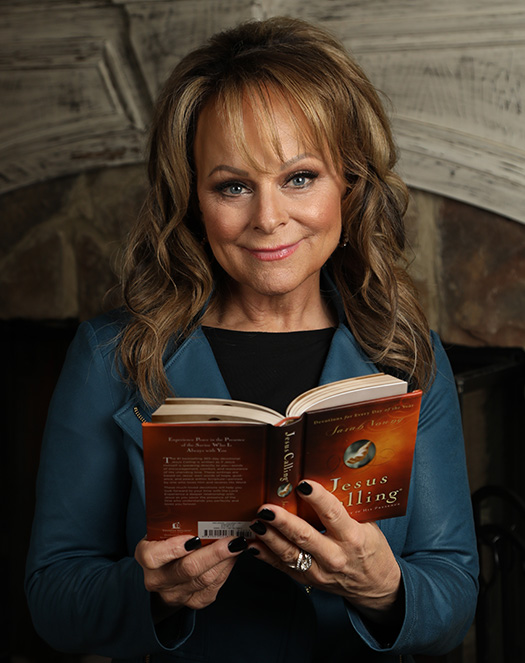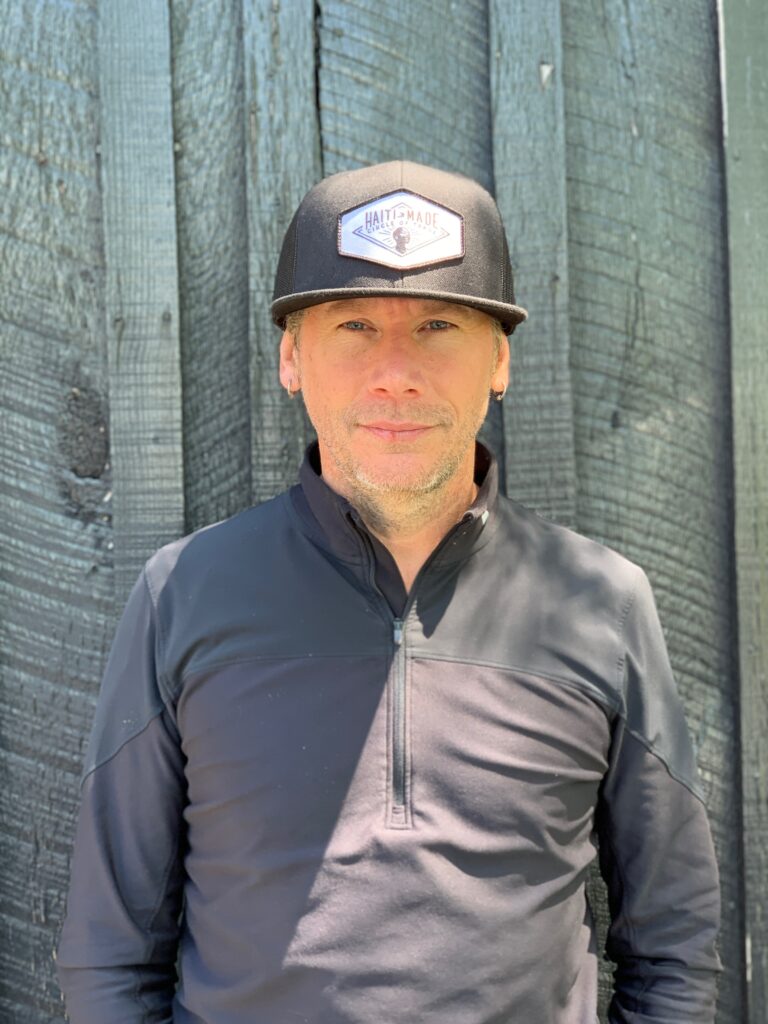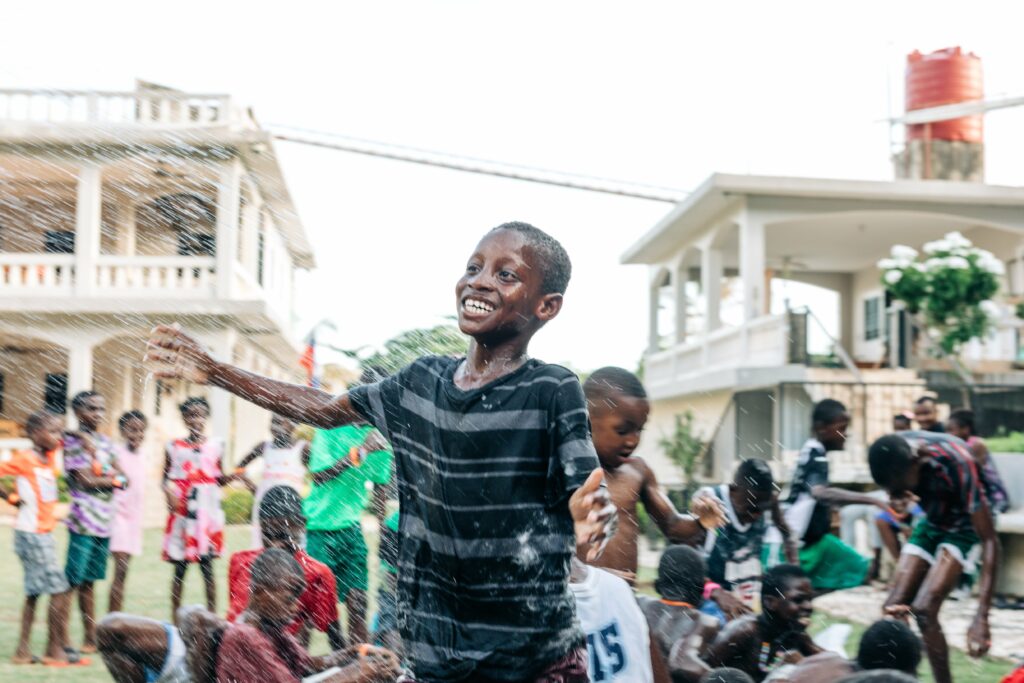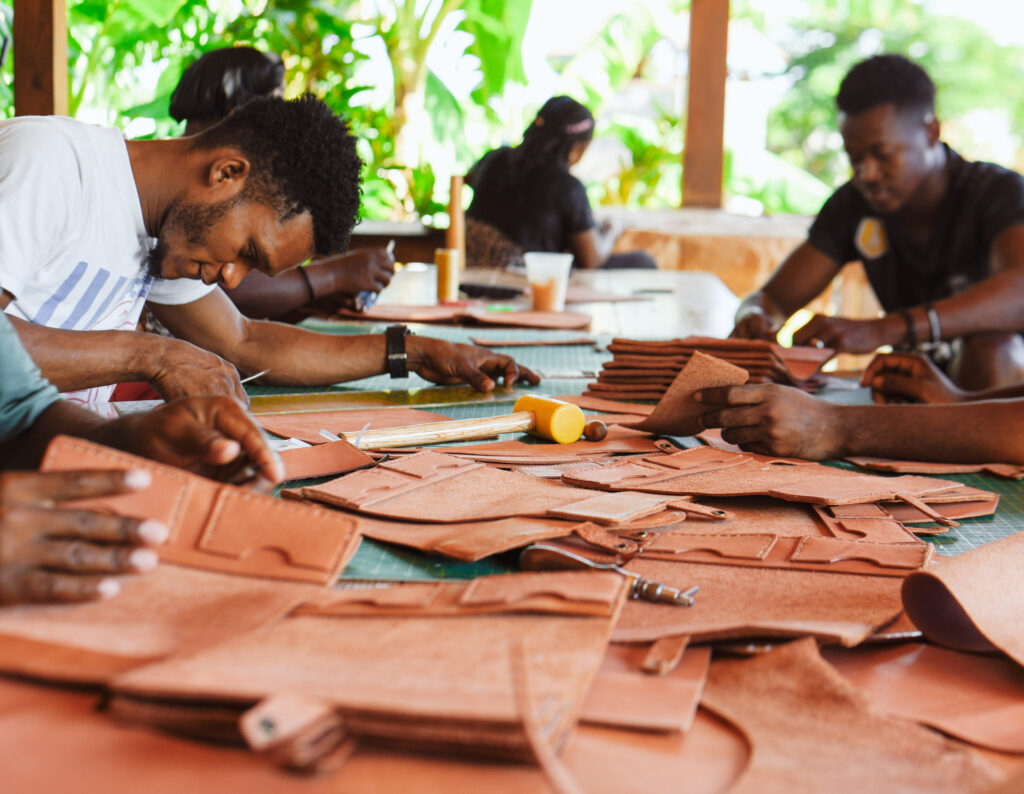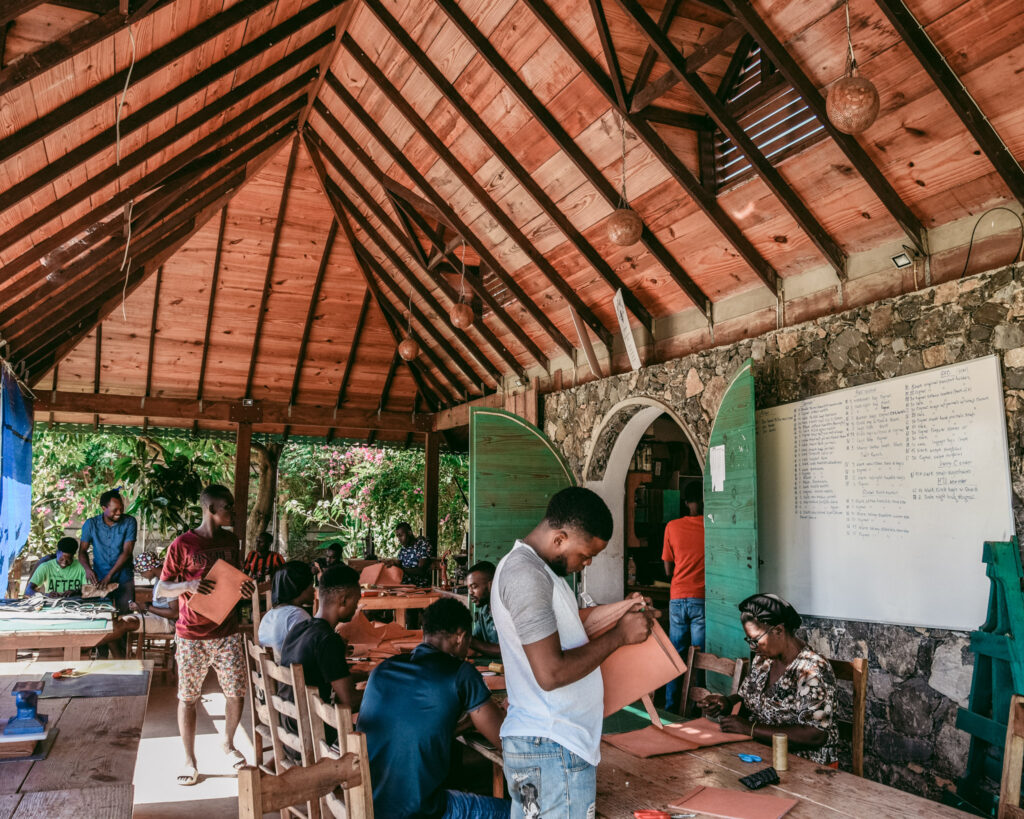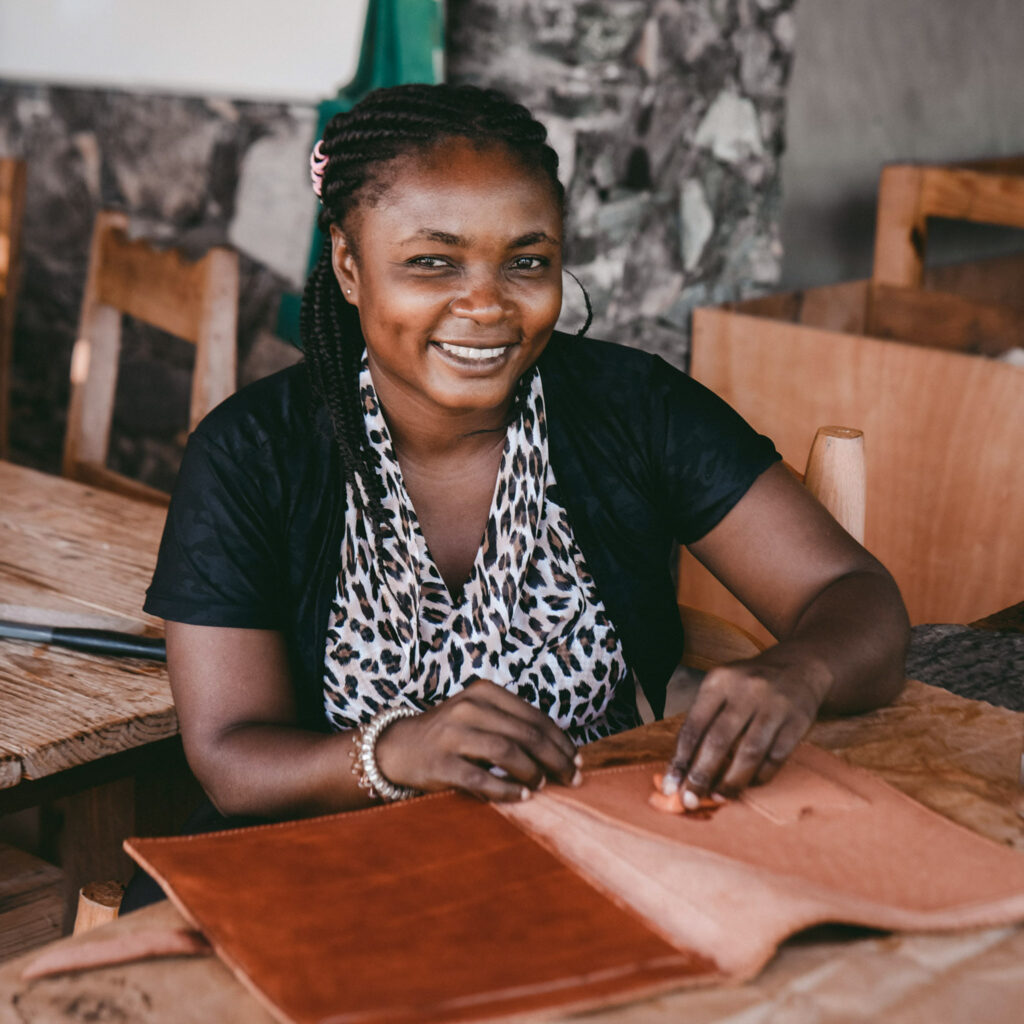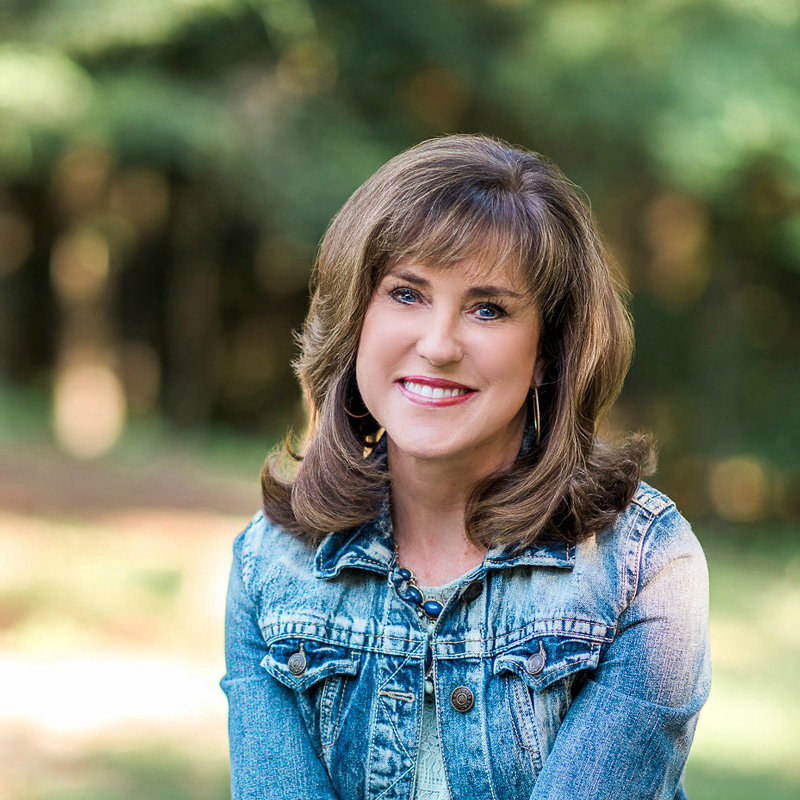How Can We Help Others in Need?: Hal Donaldson & Will McGinniss
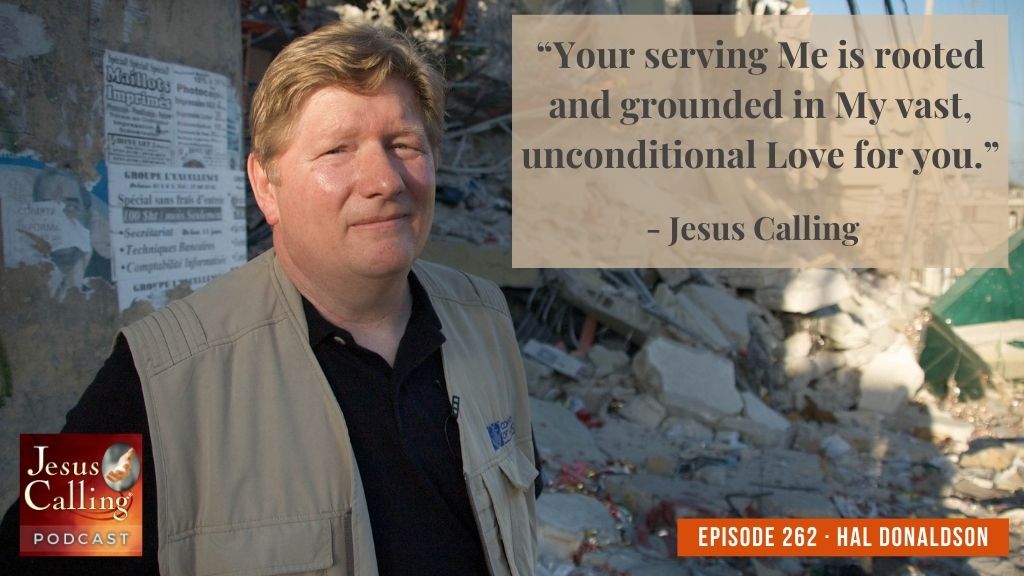
Hal Donaldson: I think a lot of people feel like they have to go looking for their mission. I believe if we make ourselves available to God, our mission finds us—Jesus gives us our mission.
How Can We Help Others In Need?: Hal Donaldson & Will McGinniss – Episode #262
Narrator: Welcome to the Jesus Calling Podcast. Many of us feel called to serve others in some way. Often when we think about what that could look like, we might feel overwhelmed at the amount of need all across the world that must urgently be met. How do we know where to start? This week’s guests, Hal Donaldson, the CEO of Convoy of Hope and Will McGinniss, CEO of Haiti Made share how they found a way to make real change in lives and in hearts—and opened up avenues where we all can help by spreading the Word of God and caring for His people at the same time.
First up, Hal Donaldson is the president and CEO of Convoy of Hope, an international relief organization that has brought desperately needed resources and care to those who need it most. Hal’s longing to help the less fortunate stemmed from his early childhood after his father was tragically killed in a car accident and Hal, along with his three siblings, were cared for by a couple who didn’t have anything but love to give. As Hal got older, he had the opportunity to meet Mother Teresa, and she asked him a question that would spark the foundation for Hal’s lifelong mission: What are you doing to help the less fortunate? Since then, Hal has devoted his career to making himself available to God, answering the missions he’s called to, and loving others well.
Hal Donaldson: My name is Hal Donaldson, and I serve as president and CEO of Convoy of Hope, which is an international relief organization. We do work across the United States and around the world. My wife and I have four daughters, and we’re based in Springfield, Missouri.
The Loss of a Father
I grew up in the San Francisco Bay Area, and so I am an avid Golden State Warriors fan, and I have three younger siblings. My father was a pastor, and so we not only attended church, it felt like at times we lived at the church. I believed in God from a young age and probably was about the age of seven or eight when I really made a declaration that I wanted Him to be my Savior. But I had lots of questions.
My life really changed when my father was hit by a drunk driver. I was twelve, and my family was quite poor after that because my father didn’t have insurance. There were many days we had to go to school with holes in our shoes and holes in our jeans. Those were some very difficult times. Cupboards were empty, and some days we’d have to go to school without even a sack lunch.
I’ll never forget what happened the night of my father’s accident.
My mom was in the car too, and she was injured as well. She would be in the hospital for a number of months, trying to piece her bones back together and many internal injuries. But that night, I remember the police coming to our house to tell us what had happened, that my father was dead, my mom was fighting for her life. And that night, a number of friends and neighbors began to gather in our front yard and a police officer spoke to the crowd. He said, “Are there any family members or friends here who are willing to take the four children home with them tonight? If not, we’ll take them downtown to the station.”
It maybe felt like a few minutes before someone responded. I’m sure it was just seconds, but it felt like a lifetime before someone raised their hand and said, “We’ll take them.” And that happened to be Bill and Levator Davis, longtime friends, a young couple that said, “We’ll take them.”
They invited us four children to live with them. And so ten people lived in their single-wide trailer. It was during that year of living with them—I’m sure they thought it was going to be like a one-night sleep over—but it ended up being a year. And during that year, they wrapped their arms around me and my brothers and my sister and reminded us that Jesus does love us and He does have a plan for our lives.
The Start of New Mission
I have a degree in journalism from San José State University and also a degree in political studies. And after college, I began teaching at a college. I served as editor of a magazine. I also was writing books at a pretty young age. And one of those book writing projects took me to Calcutta, India, where I met Mother Teresa. And during the course of that interview, she asked me, “What are you doing to help the poor and the suffering?”
I figured it was probably not a good idea to lie to Mother Teresa, so I told her the truth. I said, “I’m really not doing much of anything.”
She looked back at me and she said, “Everyone can do something.” And she began to talk to me about doing the next kind thing that Jesus put in front of me. Those words were very haunting.
“I met Mother Teresa, and during the course of that interview, she asked me, “What are you doing to help the poor and the suffering?” I figured it was probably not a good idea to lie to Mother Teresa, so I told her the truth. I said, “I’m really not doing much of anything.” She looked back at me and said, “Everyone can do something.” And she began to talk to me about doing the next kind thing that Jesus put in front of me.” – Hal Donaldson
I came back to the United States, and along with some friends, we began loading pickup trucks and U-Haul trailers and taking groceries into needy areas and just passing them out to working for poor families. And that really was the start of Convoy of Hope. We never intended to start a charity or a nonprofit. It was, again, just trying to do the next kind thing that Jesus put in front of us. We saw a need, saw an opportunity, but God began to bless it in a very significant way. What started in the back of a pickup truck has now ministered to millions of people around the world.
Convoy of Hope has now served over 100 million people. We have distributed well over a billion dollars and donated food and supplies. We feed 200,000 children every single day in fourteen countries, and we train thousands and thousands of single mothers and farmers. Those mothers, we help them start their own businesses. With farmers, we help them increase their yields. And we also respond to disasters across the United States and around the world. We also conduct community outreach across the country. We do about fifty of them every year. And that’s where we bring together churches, businesses, civic organizations, government agencies. We bring them together to really touch their own community. And the outreach, they provide everything from free medical and dental care to job fairs, shoes for kids, groceries, and a full menu of services. And through all these outreaches, we mobilize about 50,000 volunteers every year to share their faith in a practical way.
You know, when you’re obedient to God and you do the things that are important to God, He takes that step of faith and He grows it. He makes it something larger than we ever dreamed. I know that’s been the case with Convoy of Hope. I believe that vision is incremental, that if we’re obedient to the little things, God can take those little things and He can show us the next step and then the next step until it becomes something much larger than what we ever dreamed.
“When you’re obedient to God and you do the things that are important to God, He takes that step of faith and He grows it. He makes it something larger than we ever dreamed.” – Hal Donaldson
Stay Tethered to God’s Word
One of the questions I do get a lot is, “How do I cope with all the pain and the suffering that your’ve seen in the world?” I think we have a choice. We can allow the images of despair to paralyze us or the enormity of the problems to paralyze us, or we can roll up our sleeves and say, “Let’s get to work.”
Jesus used me to make a difference. And one of the things I believe is that when your mission is right, you can anticipate both hardship and miracles. I think if you are doing the work of the Lord, you are helping hurting people. If you’re helping your brothers and sisters, if you’re doing the right thing, their mission is right, there’s a big target on your back. And if you’re driven by disruptive compassion, there’s a big target on your back. But it’s because of the hardship that it keeps you reliant on God, and it keeps you in the Word of God. If it was easy, we might feel like we could do it without God’s Word, and we can’t. We have to stay connected. We have to stay tethered to His Word.
“We can allow the images of despair to paralyze us or the enormity of the problems to paralyze us, or we can roll up our sleeves and say, “Let’s get to work.” Jesus used me to make a difference.” – Hal Donaldson
My daughters and my wife and I, we’ve utilized Jesus Calling for years. It’s just such a tremendous inspiration. It feels as though Jesus is talking directly to you, and it really offers help when you need it most. I’ve just been surprised by how timely the words are. So we’re grateful for Jesus Calling.
This is from Jesus Calling, May 29th.
I am with you, watching over you constantly. I am Immanuel (God with you); My Presence enfolds you in radiant Love. Nothing, including the brightest blessings and the darkest trials, can separate you from Me. Some of My children find Me more readily during dark times, when difficulties force them to depend on Me. Others feel closer to Me when their lives are filled with good things. They respond with thanksgiving and praise, thus opening wide the door to My Presence.
I know precisely what you need to draw nearer to Me. Go through each day looking for what I have prepared for you. Accept every event as My hand-tailored provision for your needs. When you view your life this way, the most reasonable response is to be thankful. Do not reject any of My gifts; find Me in every situation.
This passage is a great reminder that every day is another opportunity to represent Jesus, whether it’s in your home, your work force, at school, in the community. Everything can an opportunity to express our gratitude to Him for His love and His acceptance and, just by how we live. And we can wake up every morning asking Jesus, “Help me to invest in someone today. Show me where You need me most.” That’s what I love about this particular reading. It’s really a playbook for how to make every day count.
Revolutionary Kindness
Jesus was a revolutionary. We don’t necessarily see Him as that, but He was a revolutionary. He is the greatest protester the world has ever known. He came to Earth to disrupt the status quo. He saw things on Earth that He wasn’t pleased with, and so He came to protest those and to make changes. We’re talking about a revolutionary who leads with kindness.
Our world needs fundamental change. It needs people who will have a holy anger, if you will, when they see hungry children when they see abused mothers when they see teenage suicides. We need a holy anger to rise up in the world. Today, we’re revolutionaries in the name of Jesus who are willing to pay the price to provoke change.
I think we know our lives are too comfortable when our comfort becomes our highest priority. And that’s why I think revolutionary is such a good word because when you look at revolutionaries throughout history, it’s people who are willing to jump out of their comfort zones and to pay a price to see change. It’s leading a selfless life. It’s saying, “God, use me as You will. I’m not satisfied with the way things are in my life or in my world. I want things to change. So, God, show me how.”
So revolutionaries are selfless people, they’re not selfish. I think a lot of times, though, that the spiritual journeys become very selfish. And Jesus never taught that. That’s not what He intended. It’s certainly not what He modeled. And I think we need to come to the realization that the key to life, the key to fulfillment, purpose, it doesn’t come from exceeding others. It comes from elevating others.
“The key to life, the key to fulfillment, purpose, it doesn’t come from exceeding others. It comes from elevating others.” – Hal Donaldson
Narrator: You can find Hal’s books, including Disruptive Compassion and Your Next 24 Hours, wherever books are sold.
Stay tuned to Will McGinniss’ story after a brief message.
Jesus Calling: Stories of Faith TV Show – Season 2 Now on Circle!
Jesus Calling is back for Season 2 of the TV Show Jesus Calling: Stories of Faith, which premieres on May 18th. This season is hosted by Susie McEntire-Eaton and features so many wonderful stories from artists, celebrities, sports figures and more. You won’t want to miss these real-life stories from people like football legend Kurt Warner, country superstar Reba McEntire, Worship singer David Crowder, and beloved coach Tony Dungy—and many more. Tune in every Tuesday and then again on Sunday starting May 18th, on Circle TV. For more information on how to get the show via cable or on streaming services, visit Circleallacess.com.
Narrator: Our next guest is the CEO of Haiti Made, Will McGinniss, formerly part of the rock band Audio Adrenaline. Raised by his grandparents and influenced by his uncle’s profound faith, Will always knew that he wanted to serve in some way. He never imagined that God would hand him a platform like the one Audio Adrenaline provided, which enabled him to bring resources to the poverty-stricken nation of Haiti through his Hands and Feet Project and Haiti Made. Will was passionate about creating sustainable change that has a trickle-down effect, improving quality of life for the people of Haiti without Westernizing it, honoring their traditions and their family values. Will shares some of the incredible things he’s seen and learned over his years of service.
Will McGinniss: Will McGinniss here—I am currently the CEO of Haiti Made. I came from a broken home, so I have a kind of an interesting backstory. I probably was raised more by my grandma and grandpa, and they were incredible people. They would take me to church, and I first got my love of music from my grandma. She bounced around on the piano, and I heard about Jesus for the first time when she took me to a small Methodist church.
But from there, my cousin and my aunt and uncle were very influential. My uncle was an incredible Christian man. They loved on me and my cousin, who first invited me to youth group. It was there that I would give my life to Jesus in the tenth grade, and then I thought, Well, I saw my uncle go to a small Christian Bible college in Kentucky, and he was a teacher. I saw how influential he was on the people he got to teach and just be around in the way he carried himself. And like, I want to be like my uncle.
When I was at my small Bible college, the very first week I got into this Christian rock band, and God had a different plan. He was like, “Yeah, I’m going to take your heart to help people, and I’m going to give you a platform to do that. And you’re going to reach a lot of people who come from all different walks of life, and your music’s going to bless them and encourage them.” I’ve just been following where the path takes me and just trying to be faithful with the little things.
“The very first week I got into this Christian rock band, and God had a different plan. He was like, ‘Yeah, I’m going to take your heart to help people, and I’m going to give you a platform to do that. And you’re going to reach a lot of people who come from all different walks of life, and your music’s going to bless them and encourage them.’”- Will McGinniss
Hands and Feet Project
I was in the rock band Audio Adrenaline, and I was the bass player. Once our band had been traveling around the country quite a few times, we had been a band for probably about ten years or so, and we were trying to find just some new vision, some new passion. We had done a lot of touring, and we’d won a lot of awards. We’d won a couple of GRAMMYs, number-one singles, and accomplished a lot. But at this point, we were just really wanting kind of a deeper reason to leave home and continue to do things.
I think we were playing a song from our stage called “Hands and Feet,” which was a very popular song for us. But we challenged people to go out and to do more with their faith. And here we were, standing on stage just telling people what to do. And I guess we felt convicted in a way—we didn’t really feel like we were doing a lot other than playing our music and writing songs and encouraging the church. So those two kind of ideas collided where we wanted to do more and we wanted to have a greater reason for playing music at that time. And I guess that’s how the Hands and Feet Project was born.
We went to the country of Haiti, and that’s kind of where the Lord led us. He showed us that we could use our platform to champion some kind of cause in Haiti, some kind of work. The Hands and Feet Project would be that work, and “Hands and Feet” the song would be kind of the anthem around the work. In 2004 we went there. We pulled the band’s money together and bought land, and Hands and Feet was born in Haiti.
We also found out there was a great need there in the area of the orphan and abandoned child issues in Haiti. And so Hands and Feet Project would become a children’s village to care for the orphaned and abandoned children of Haiti. So we started talking about this from our stage, and we got to champion the least of these, the orphan and abandoned. And we felt like we were fulfilling, you know, James 1:27 when it said to look after the orphan and the widow, and that became our scripture for that.
The Birth of Haiti Made
But really, if you fast forward about five years, we were doing this work. We had children we were caring for, people were coming, our fans were coming to Haiti and were supporting this great work with us and really rose to the occasion and supported the cause greatly. But we realized that we were missing the mark a little bit because we were building these incredible facilities and giving this incredible care to these students that God was entrusting to us. But it was enticing families to give up their children to what they thought might be a better opportunity for them. And we just were like, “No, that’s definitely not why we came to Haiti.”
That’s when we got in the fight to try to support families and to keep families together and only use Hands and Feet Project as a last resort for those situations out there, for kids who were orphaned or abandoned in nature. But part of that supporting families, we asked ourselves: what did that look like? What could that be?
That’s when we realized that Haiti was in desperate need of jobs. And so we started trying to look at our Hands and Feet campuses as a job creation effort as well, where we could employ Haitians, we could come alongside families and through a job, we could really support these families in a great, healthy way, in a dignified and sustainable way.
And so Haiti Made is just kind of a continuation of that. We deal in the area of leather, and we make these products in Haiti as a job creation piece, and the products are brought back to America and they’re sold. That supports families in Haiti, and it also supports our transitioning students as they age out of our programs at Hands and Feet Project.
I want to show off Haiti’s beauty, and I want to show off Haiti’s wonderful people. But you can’t overlook the extreme poverty that’s there and and the poverty that leads to families that struggle. It’s hard for them to care for all of the children. And so that’s how they end up giving away some of the children to what would be a better option. That’s how they end up in this orphan crisis, where they’re just trying to find ways for their children to survive. The orphanages look like a better option, but not all of the orphanages are well run.
That’s what Haiti looks like to me. What captivates you about Haiti is you go there and you fall in love with the people. The people are very loving, very kind, very helpful: “Good morning, good afternoon. How are you? How’s your family?” And they’re just such incredible people. They really draw you in, and you want to keep going back time after time to try to help these beautiful people.
You know, a family that has to go to get water every day together, cook together, go to market and get a couple of days’ sustenance and then go back home. They do that day in and day out: getting water, going to market, getting food provisions, farming, growing, harvesting the land, planting and all of that. It’s such a beautiful thing. That’s where all of the children hear the stories of grandma and grandpa and a few generations, and they can hear about the gospel. They hear about Jesus on those walks to the market or to get water, or they really learn responsibility or a lot of good work ethic at a young age, having to be a part of the family and help the family survive and everyone doing their part.
We could learn a lot from them here in the Western world. We’ve gotten so busy and where we don’t even, like, eat dinner with our families at night, or we simplified our lives so much that we take a a lot of the the way it used to be out of the picture, like learning from grandma and grandpa sitting around the table and hearing stories about the way it used to be.
What we’ve learned through time is that there has to be a cultural exchange. And we both learn from one another—not that we come in with all the right ideas and completely “save” them, because Jesus has been there for centuries, you know, and decades. But we often come in and feel like we know what’s best for these people. We want to help and have great intentions, but our helping can often create more problems. And so we want to do that in a way that’s an equitable exchange.
“What we’ve learned through time is that there has to be a cultural exchange. And we both learn from one another—not that we come in with all the right ideas and completely “save” them, because Jesus has been there for centuries, you know, and decades. But we often come in and feel like we know what’s best for these people. We want to help and have great intentions, but our helping can often create more problems. And so we want to do that in a way that’s an equitable exchange.” – Will McGinniss
Seeing How God Has Moved
There’s so many stories of what God has done. I mean, our older kids now are eighteen, nineteen, twenty, twenty-one, twenty-two. Some of them have transitioned out. Some of them are trying to go to university. Some of them are starting jobs. Some of them are buying a house, and they work at Haiti Made. It’s a landing place for them, whether for a season or for a long term, where they can really fuel their dreams and chase life.
There’s so many stories of these different children that Hands and Feet has been blessed and honored to care for. And we walk through a lot together. We walk through what it feels like to be labeled orphaned or abandoned and to be given up by your family. And we’ve tried to provide a real circle of care around them—the physical, the emotional, spiritual, and all the above—just to take care of all those needs and to see them really become healthy and well.
I think our self-care is really one of the most important things that we are in charge of as a Christian. We’re not going to be any good to anyone else out in the world—your wife or your kids, or when you’re trying to do mission work in a developing nation or run a job creation effort. If you’re not healthy and seeking God’s face every day, then it’s going to be harder and harder for you to sustain those things you’re trying to do for God and to be fueled and girded up and protected in and equipped for the task every day.
And so a thing like Jesus Calling is a daily part of my self care. It’s a part of me connecting with God and connecting with myself. And as He’s entrusted more to me, running Haiti Made now, I don’t always feel qualified every day. But I know if I show up every day with a good effort and a good work ethic and with God’s Spirit and His help—I call on Him daily to help me lead this team and to be able to get in the right doors, get the right doors open to sell these goods. We’re just continually trying to be creative and having this work grow and to create more jobs and touch more and more families through that.
“I don’t always feel qualified every day. But I know if I show up every day with a good effort and a good work ethic and with God’s Spirit and His help—I call on Him daily to help me lead this team and to be able to get in the right doors, get the right doors open to sell these goods. We’re just continually trying to be creative and having this work grow and to create more jobs and touch more and more families through that.” – Will McGinniss
Narrator: To learn more about Haiti Made, and how you can help with the work they do in Haiti, please visit www.haitimade.com.
If you’d like to hear more stories about moving the world for Jesus, check out our interview with Brian Tome.
Narrator: Next time on the Jesus Calling Podcast, we hear from Sharon Jaynes of Proverbs 31 Ministries, who opens up about how reflecting on your past gives clarity for a brighter future.
Sharon Jaynes: He is on His throne and He is in control no matter what is happening with the political situation, with the medical situation, with the racial situation, with any situation that we’re going through right now, God is still in control. And sometimes, you know, things have to get better before they get worse. We know that. But make sure that we’re looking through the right lens of gratitude. We can look for the lessons that we need to be learning through this, that we can learn more about the character of God as we’re going through this, that we can learn more about how to be grateful when we’re going through difficult circumstances.
